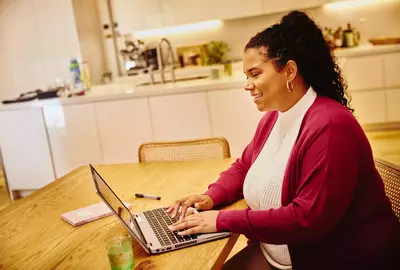While many of the New Zealand workforces is working from home as they play their part in preventing the spread of the Coronavirus or COVID-19, a new set of challenges are starting to come to light, which typically wouldn’t have existed outside of a government enforcement isolation measure.
For the typical office-based employee, working from home, or working from elsewhere has become more and more common. Many employers praise themselves for flexibility and for allowing employees to work from home when they need to, or on a more regular basis.
The COVID-19 outbreak however means that in some households, there are multiple people working from home at the same time. This of course has the ability to breach data privacy policies and allow people external from the business, to overhear confidential conversations and gain access to private information and documentation.
top 3 tips on how to work from home privately:
- protect your data
- avoid work conversations
- have confidential conversations away from others.
protect your data.
You are at risk of exposing company information when you leave the safety and security of your dedicated workplace and work remotely. If you live on your own, this isn’t so much of a problem, however it’s always advisable to still adhere to best practice privacy measures to be safe.
Outside of Coronavirus isolation, some individuals that work from home, may break up the day by heading to the local library or coffee shop for a change of environment.
In these cases, devices need to be protected against loss and theft for example. In order to ensure you’re safe, follow the below instructions:
encryption
- Ensure your employer sets you up with adequate safety measures to allow you to log on privately. This ensures that even if the device falls into the wrong hands, the company’s data is not accessible.
log out.
- When your machine isn’t by your side, both at home and in public places, lock it. You never know what could happen, a child might accidentally send an email or change a setting that you could never find out about. It’s also about limiting the opportunity for someone to access the machine while your back is turned in the local coffee shop or library.
create a strong password.
- Not so strong that you’ll never remember it, but try and make it unique to yourself.
- Try not to stick it on a post-it under your mouse mat or write it in the front page of your notebook.
don’t tempt thieves.
- Always put your device away at night, after work. If you’re on the road, lock it in the boot of your car.
- Keep it safe and you won’t have to confront your manager and or IT department about why they have to fork out on a new laptop because you left it on display.
avoid work conversations.
When you’re at work, conversations, unsurprisingly, are mostly about work. However, in a relaxed home environment, it sometimes can feel natural to chat about work to loved ones or housemates.
In a rare, but possible situation where two people in a home, who are both working from home while quarantined, work for competitors, it can get a bit messy. Although it’s not likely that one person could take insight and private information for the other and pass to others in their business intentionally, it does have the ability to come out in an informal chat. This then can lead on to others passing competitor confidential information into the wrong hands.
To be safe, try and stick to neutral subjects and limit the work chat to email and instant messenger.
If you need any extra advice about how to best communicate with others when working from home, see here.
have confidential conversations in a separate room.
When you’re in the office, confidential conversations are happening all around you. Whether it’s one colleague talking to another, someone taking a phone call from their desk, or a team update where it’s strictly business chat, it’s going on all of the time.
When working from home, it’s vital that the conversations you wouldn’t have outside of the office, aren't happening outside of the office.
HR managers for example are responsible for handling confidential matters as part of their day job, accountants will be dealing with sensitive business numbers, and health workers may have to discuss detailed patient cases from their home.
If you have a call or meeting coming up where you know business confidential matters will be discussed, try and find some space somewhere else in your home, away from others.
If that isn’t a possibility, plug in your earphones and try and limit repeating what others are saying unless vital.



